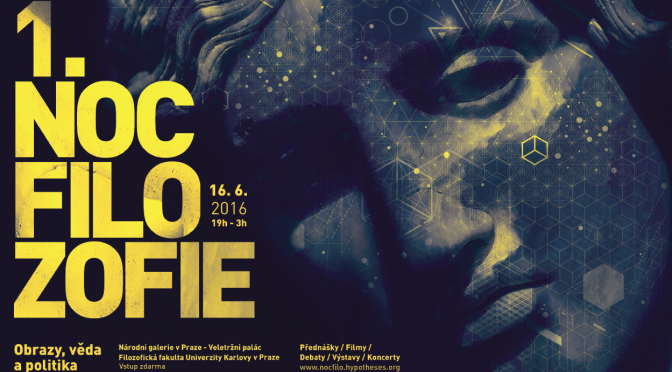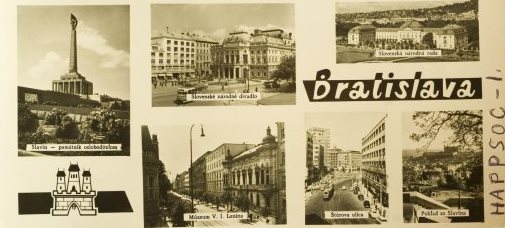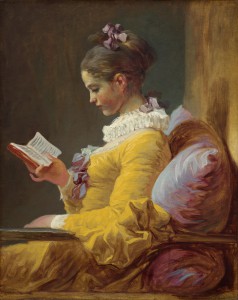
Join us on the night of 16-17 June to discuss about “Images, Sciences and Politics” with the guests of the very first Night of Philosophy in Prague and in Central Europe. Between 7 pm and 3 am, at the Faculty of Arts of the Charles University and inside the Fair Trade Palace of the National Gallery in Prague, you can pick and choose between screenings, exhibitions and guided tours, readings, lectures, concerts, debates and encounters—within a dozen of rooms.
Our aim: to create a dialogue between a large public and above 55 leading international philosophers around very contemporary ethical and political questions. Find out the complete program of the Night of Philosophy on the blog: https://philonight.hypotheses.org/
Free Entry!
Where: The National Gallery in Prague – Trade Fair Palace & the Faculty of Arts of Charles University in Prague
Languages: English / Czech / French (with simultaneous translation in Czech)
Main organizers: FF UK, CEFRES, FLÚ AV ČR, IFP and the National Gallery in Prague.
A program prepared by Anne Gléonec (Paris VII University) & Ondřej Švec (FF UK).
Check our partners and supports here.

Perin Emel Yavuz (CEFRES & FMSH) will challenge the notions of center and periphery in her lecture on the turn of art which occured in the 60-80s avant-garde in Bratislava in the frame of the seminar of the Institute of Sociology of the Czech Academy of Sciences.
Language: English
Where: Jilská 1, Prague 1
The remarkable turn of art which occured in the 1960s-1980s has been under the scrutiny of researchers in Western Europe and United States since the early 2000s. Yet, most of their investigations focus on this geographical area assumed to be the center of the avant-garde. Attention given to “margins” and other “peripheries” offers a different perspective to what is an obvious Western ethnocentric myth. Through the study of the microcosm of Bratislava neo-avant-garde, this lecture aims to highlight the chronological parallelisms known between “center” and “periphery” art. The study of artworks and artists’ careers will help understanding the origins of this turn of art, between transfers and local context.

Lara BONNEAU (CEFRES & Université Paris I)
will hold a conference in the frame of the Seminary Collegium historiae artium of the Institute of Art History of the Czech Academy of sciences
Where: Institute of Art History, Czech Academy of Sciences, Husova 4, Prague 1, room 117
Language: English
The work of the Art historian Aby Warburg (1866-1929) was elaborated within a philosophical and theoretical corpus that tends to be neglected. His esthetics was part of a more general project : elaborating a Psychology based on the relationships of the different symbolic forms forged by human beings. His method thus oscillates between an extreme attention to the details of the works of Art, and the general ambition to build a « Science of Culture ». We will focus on the notion of « energy » and relate it to the use Warburg makes of the concept of « polarity ». This way, we will try to understand the role philosophical influences played in the developpement of his work.
 A Workshop Around Roger Chartier
A Workshop Around Roger Chartier
Where: Institute of Czech Literature of the Czech Academy of Sciences – Na Florenci 3, Prague 1, Entrance C, 3rd Floor
Languages: English and French
Program
9:30–10:00 Pavel Sládek (Faculty of Arts, Charles University)
Fragility of Hebrew Printing and Its Impact (c. 1520 – c. 1650): Printing Press as an Agent of Destruction
10:00–10:30 Veronika Čapská (Faculty of Humanities, Charles University)
Textual Practices, Cultural and Economic Exchange in the (Swéerts)-Sporck Milieu at the Turn of the Baroque and Enlightenment
10:30–11:00 Michael Wögerbauer (Institute of Czech Literature, Czech Academy of Sciences)
“No Applause Please or I Shall Put My Pen Down Forever”. Maria Anna Sager’s Novels Die verwechselten Schwestern (1771) and Karolinens Tagebuch (1774) and the Problem of the Near-to-non-circulation of a text
11:00–11:30 Break
11:30–12:00 Claire Madl (CEFRES/Institute of Czech Literature, Czech Academy of Sciences)
Which boundaries for which Readership? Enlarging and Diversifying the Reading Public through Advertising
12:00–12:30 Daniela Tinková (Faculty of Arts, Charles University)
The “Dangerous Correspondance“ of the “Red Priests“ from Moravia. The French Revolution and the Formation of a Public Space in the Czech Lands
 Where: Filosofický ústav AV ČR, conference room (124a), Jilská 1, Prague 1.
Where: Filosofický ústav AV ČR, conference room (124a), Jilská 1, Prague 1.
Organizers: Centre for Science, Technology, and Society Studies (Institute of Philosophy AV ČR) & CEFRES.
Language: English.
The world we inhabit is characterized by conflicting and often incommensurable temporalities. Investigations of such tensions between and among various temporalities, how they interact and their specificities are now self-standing issues in contemporary social analysis. This half-day symposium aims to explore theoretical and methodological inquiries into the shifting character of social temporalities as they relate to the broader socio-economic and cultural change, including the overall dynamization of life and work. The two panels will focus on various perceptions of time, temporal tactics and ways in which diverse actors (institutions and individuals) negotiate and embody different temporal aspects of late modern social realities as well as on how social acceleration as such becomes perpetuated through various agentic strategies.
Program
10.30: Introduction & Opening
EXPLORING SOCIAL TEMPORALITIES
10.45 – 11.15: Immediacy, liveness, ceaselessness: foundations and consequences of the contemporary news environment – Marek Šebeš (PF JU)
11.15 – 11.45: Having no time in empty time: temporalities of the homeless – Petr Vašát (SOÚ AV ČR)
JUST HOW FAST IS ACCELERATED MODERNITY?
12.00 – 12.30: Coping with acceleration: triaging strategies and the new asceticism – Mark Carrigan (University of Warwick)
12.30 – 13.00: Fast modernity: ‘deflationary’ notes – Filip Vostal (FLÚ AV ČR & CEFRES)
13.00-13.30: Closing discussion
Program
Monday 16 May – Warsaw
5-7 PM
Lecture and debate at the Institute of Polish Culture (IKP).
Topic: History of works, history of book, history of reading.
Materiality of the text and horizon of expectations.
Discussant: Paweł Rodak (IKP).
Tuesday 17 May –Warsaw
10-12 AM
IKP and Institute of History (Warsaw University) joint PhD seminar around Roger Chartier’s text « The Author’s Hand. Literary Archives, Criticism, and Edition »
Wednesday 18 May– Prague
9:30 AM-1 PM
Written culture and society in Czech regions, 16th-18th centuries.
Workshop in honour of Rogier Chartier organized by the Institute of Czech Literature. See the complete program here.
Speakers: Veronika Čapská (FHS UK), Claire Madl (CEFRES), Pavel Sládek (FF UK), Daniela Tinková (FF UK), Michael Wögerbauer (ÚČL AV ČR)
Discussant: Roger Chartier.
Organizer: Michael Wögerbauer.
Where: Conference room of the Institute of Czech Literature,
Na Florenci 3.
6 PM
Lecture by Roger Chartier organized by CEFRES.
Topic: What is a book ? Answers of a Kant’s question.
Where: Kino 35, French Institute of Prague.
Thursday 19 May – Prague
5 PM
PhD workshop around Roger Chartier lead by Jiří Hnilica (FPed UK).
Where: CEFRES Library, Na Florenci 3.





